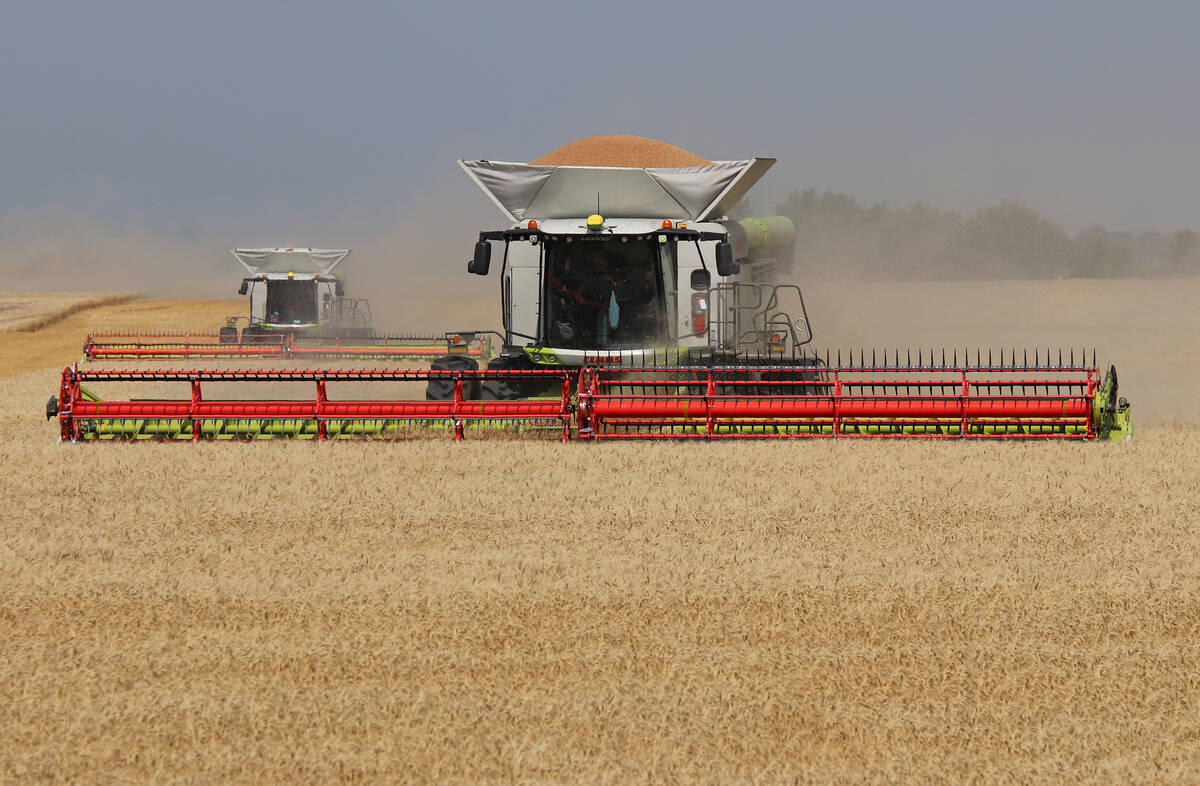Cattle prices drop
Fed cattle prices were 50 cents to $1 per hundredweight lower this week in spite of stronger American prices.
Most packers appeared to have adequate inventory and showed little buying interest, said Canfax.
Labor problems at the IBP plant in Pasco, Washington, hurt demand. A stronger Canadian dollar also reduced the money.
Volumes were down 17 percent from last week at almost 17,000 head.
Alberta prices June 10 were steers $85.25-$87.55 per cwt., flat rail $145.60-$146.40 and heifers $85.25-$87.25, flat $146.
Boxed beef prices are strong in the United States but Canadian prices have struggled recently.
Read Also

China’s grain imports have slumped big-time
China purchased just over 20 million tonnes of wheat, corn, barley and sorghum last year, that is well below the 60 million tonnes purchased in 2021-22.
Montreal wholesale beef prices lost $2 per cwt. to $154 while Calgary wholesales were $147-$156 on handyweights. Heavyweights were about $6-$7 lower.
Byproduct values were steady but pressure might show up on hides in the next few weeks.
Canfax said the fact that U.S. fed cattle markets gained $1 and local markets lost $1 confirms adequate local fed cattle supplies.
This week’s cash basis of $9 to $10 under is similar to last year at this time.
Cattle supplies in the northwestern U.S. may start to build due to the labor problem in Washington.
While Alberta prices should be steady this week, fed cattle in Saskatchewan and Manitoba should be looking at U.S. markets as an option, said Canfax.
Slaughter cow prices were lower last week by about $2 per cwt., although some markets reported declines of $3-$4. Packers pulled their bids back as the boneless beef prices slipped.
Prices generally are $3.50-$5.50 per cwt. higher than this time last year.
Feeder cattle sales were steady to higher.
Prices were mixed but the 500-700 pound weight classes saw increases of about $1-$3, said Canfax.
Compared to last year, feeder prices are generally $4-$5 per cwt. higher and lightweight cattle are $7-$9 higher.
Expect prices for feeders to remain strong as feedlots and buyers look for quality in dwindling supplies.
Bred cows ranged in price from $550-$1,200 on small volumes. Bred heifers were poorly quoted in a range of $750-$1,000.
Cow-calf pair sales were from $600-$1,510.
Hog prices rise
The U.S. hog market strengthened early last week as the rise in wholesale prices for loins and ribs gave Iowa and southern Minnesota packers an incentive to pay up to $40.25 per cwt. (U.S.) for hogs (plant top, 51-52 percent lean, live equivalent.)
Cooler weather and ample hog marketings saw prices drift lower later in the week with a June 11 price of $30.50-$39.50 per cwt. and a mean of $36.37.
Some analysts said good pork movement at relatively steady wholesale prices means U.S. retailers may be planning to feature pork for the July 4 holiday, said Manitoba Agriculture. That might help reduce record cold storage stocks of pork.
Manitoba average Index 100 hog prices were estimated at $133 per hundred kilograms last week, four percent higher than the previous week.
USDA’s latest projections put U.S. pork production for 1999 at less than one percent below the 1998 level.
So far this year, pork production has averaged three to four percent above last year’s level. Most of the decline is expected in the fourth quarter.
U.S. prices in the fourth quarter could average $38-$40 per cwt. (U.S.) live, while Manitoba prices could average $135-$140 per ckg (Cdn).














